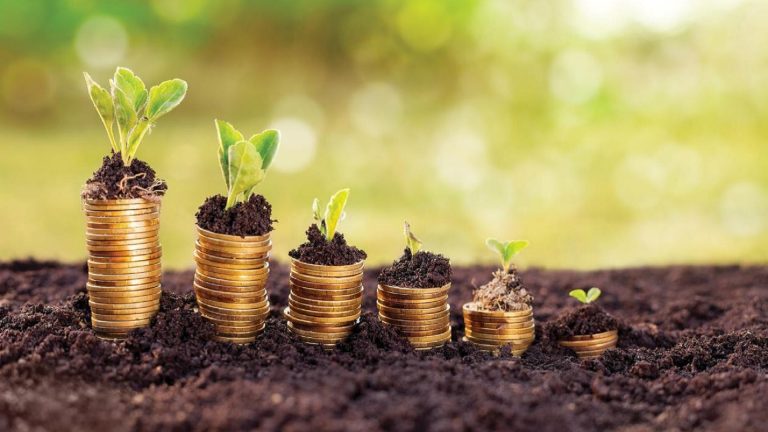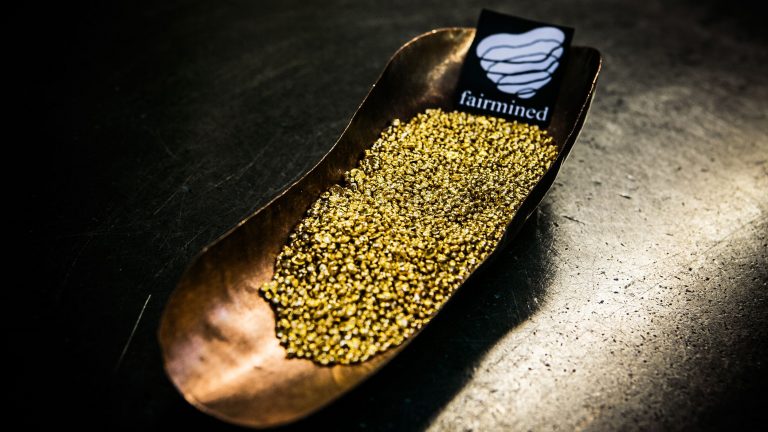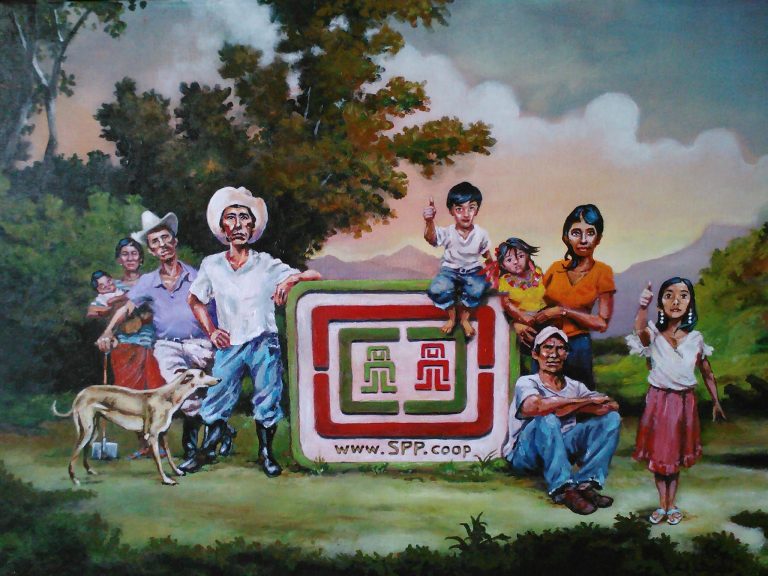We try to analyse the whole chain. We want to highlight small-scale farmers.
Dominique Jacques. Tweet
The Biogarantie label is in the process of evolving towards a Biogarantie Belgium label. The objective? To be increasingly responsible and demanding when it comes to the notion of ‘organic’, to highlight Belgian production and processing, and to guarantee a fair price for the workers in the agricultural chain. In short, a whole set of specifications defined by the farmers themselves in agreement with the other operators in the sector. And it is a real challenge to get everyone on the same page…
Did you know that the Biogarantie label is more than thirty years old? It was created in 1987 by a group of Belgian citizens who spontaneously got together in support of organic farming. The logo and the first specifications of the label were set up in the months that followed. “The Biogarantie label therefore predates European regulations,” says Dominique Jacques,. Indeed, the European-level regulation on organic farming was created in 1991 and aims to inform citizens about the origin of products and make it easier to value producers’ organic production.
From the Biogarantie label to the Biogarantie Belgium label
This is the starting point. Today, the Biogarantie label is gradually giving way to a more ambitious label that includes not only organic but also social criteria, “with respect for people and planet”, as it says on the website. This is the Biogarantie Belgium label. It’s not easy to distinguish between the two because the logos are almost identical. The only difference is the small Belgian flag at the bottom of the Biogarantie Belgium logo.
How does this new label work? It brings together several organisations: BioForum Vlaanderen, which represents all operators (producers, processors and distributors) in Flanders and Brussels, Probila-Unitrab, which represents processors and distributors in Wallonia and Brussels, and the National Union of Belgian Agrobiologists (UNAB, the producers in Wallonia and Brussels) of which Dominique Jacques, our contact partner, is the president. “The label was created to draw up organic regulations that go a step further, and that are put together by these partners who represent the industry”. Why a second label? “To go further than the European label and the first Biogarantie label, which is a little too broad”. We’ll come back to that…
The first labelled products
This second label, Biogarantie Belgium, will therefore replace the first Biogarantie label in the coming years, “even though the old one will still be used for export, while the new one serves to raise consumer awareness of Belgian production and processing”. But there is still work to be done between now and then: “All decisions are taken together and we do not always agree. Interpretations of what is organic or not are stricter in Wallonia, where one hectare in ten is already organic. But it is also thanks to Flemish farmers that we are making progress, and in particular thanks to market gardeners, who want to differentiate themselves from the organic farming of very large areas”, explains Dominique Jacques. “In my opinion, we should abolish the first label, the oldest one, but negotiations are still underway with the processors who absolutely want to keep it”.

The products sold by Biofresh were among the first to get the Biogarantie Belgium label. Now there are around twenty products with the label in Flanders, and one in Wallonia. It is therefore indeed products from Belgian farmers that receive the label. “Or in the case of a dairy farmer, it is the farm that will receive the label. The shops will not, but they will still be able to promote the Biogarantie Belgium label”.
Labelling criteria that all partners get a say in
“For three years now, we have been putting all partners around the table, including the distribution sector. It should be noted that the Biogarantie label was strongly adopted by the big chains (Delhaize and others) but it was also used even if the products came from France (or were processed in France). With Biogarantie Belgium, this will no longer be possible”.
This is because Belgian farmers demand that we highlight what is produced and processed in Belgium: “Cereal producers are already trying to raise awareness among bakers. They suggest promoting Belgian raw ingredients rather than buying their barley in France, Poland or Romania. At the moment, organic products can come from anywhere. They might be flown thousands of kilometres by plane, but they’re still classed as organic. We want to be pioneers and push organic farming towards a greater level of responsibility,” Dominique Jacques explains.
But not everyone is in favour of it yet: “Consultations take time and they go faster in some sectors than others. I mentioned market gardening where some products have already received the label. It’s more complicated for the organic beef sector, which, like conventional beef, is experiencing quite a significant crisis. It’s also difficult for the organic potato because we are faced with huge processors.
Fair prices and fair trade
In addition to the origin, the label emphasises fair pay for workers in the sector. The price that the producer receives for their product is based on the cost of production. It implies a fair remuneration as well as investment opportunities. The Biogarantie NPO is committed to developing a price calculation model for each production sector. “We try to analyse the whole chain. We want to highlight small-scale farmers. For example, small market gardeners sell small quantities of products compared to bigger companies working large-scale. If you grow organic onions on 10 hectares, you can sell them cheaper than those harvested on small crops. This has to be taken into consideration when determining a fair price”, Dominique Jacques believes.
Discussions are well underway with the Biomilk.be cooperative, whose milk can be found at Delhaize: “We get a very good purchase price there”; as well as with Le Coq des Prés, which brings together about sixty poultry farmers in Wallonia. In Flanders, 25 small market gardeners sell their produce directly from the farm at a fair price: “These are guidelines that we may adopt to differentiate between large-scale (over five hectares) and small-scale market gardening”. The rules can also relate to the origin of the labour, whether it’s carried out at home or abroad.
A more demanding label
How would the label go further than the European organic label? “When it comes to nitrite salt, for example, which is already banned in Wallonia, but not in Flanders. With the Biogarantie Belgium, it will no longer be possible to produce organic chicory that isn’t grown outdoors either. We are also thinking about tightening the current organic regulations on the use of copper to treat fruit trees. We are also looking for potato varieties that are naturally resistant to late blight.

Another example: “Many organic chicken coops are still very industrial… Because the industry has taken a very broad interpretation of the organic regulations and put several batches of chickens in the same building, whereas a single batch of chickens would be much more appropriate for animal welfare. But it still meets the regulations… Here, we want to set an example that applies stricter standards by promoting small-scale and family-run farms that meet consumer expectations”, Dominique Jacques explains.
Independent certification bodies
But… how do you monitor all this? Producers devise the certification criteria together, but it is independent bodies that take care of the checks and whether or not the label is awarded. “We work with four independent inspection bodies. They are the same people who carry out the checks on organic produce. When it comes to checking that the Biogarantie Belgium rules are being adhered to, they will carry out the necessary additional checks at the same time, at no extra cost to the farmers. This means more things to inspect, such as origin, packaging, for example,” says Dominique Jacques.
What is the minimum percentage of organic ingredients that a product with this label must contain? “100%! Everything must be organic, unless you can prove that there really is no other alternative. Certain spices, for example, only exist in non-organic form. And the organic ingredients must be at least 50% Belgian and processed in Belgium [1]. If you make ice cream, for example, organic sugar is difficult to find in Belgium …”.

“It’s also important to note that Belgium and Wallonia in particular carry out more monitoring and analysis than other countries. But we continue to put forward proposals. For example, we can ask Wallonia to intensify checks in the potato sector or in other sectors”, Dominique Jacques continues.
What next?
The future Common Agricultural Policy (CAP) of the European Union (EU) is currently under negotiation and is a significant cause for concern: “European farmers currently receive agricultural ‘aid’ for the services they provide to the population, but this is likely to decrease. We will therefore have to find solutions to do without the aid, while maintaining a fair price for consumers. We must anticipate what is going to happen… Ideally, instead of aid there should be a fair price for the farmer. But the million dollar question is whether the consumer will be prepared to pay?”.
Dominique Jacques is generally confident about the future of the Biogarantie Belgium label: “New members are joining the Board of Directors, such as Biowallonie. There are new insightsat many levels. Discussions take a lot of time, but this is how we prefer to move forward. We are here to stimulate, to always be taking it one step further, and to listen to both the consumer and the producer in the process”, he concludes.
If you have any questions, you can contact Dominique Jacques via info@unab-bio.be.
Photos : Label Biogarantie Belgium
Read also

Prix Juste Producteur, the new label that guarantees a fair price to Belgium’s producers
Most people thought that 60% of the end product’s price is for the producer whereas this is only 15% on average for all products Emmanuel

Fairmined: a label entirely dedicated to fair trade gold
The Alliance for Responsible Mining (ARM) is a global initiative born in Colombia in 2004 with the aim of empowering artisanal and small-scale miners and their organisations. ARM’s fair trade standard, Fairmined, incorporates four main categories of criteria that mining organisations must meet. These relate to issues of social development, economic development, environmental protection and respect for working conditions.

The Small Producers Label
The idea had been in the air for some time. The “Small Producers’ Symbol” was officially launched in November 2010 in Honduras, during the 4th General Assembly of CLAC (the Latin American and Caribbean Coordination of Small Fair Trade Producers).


